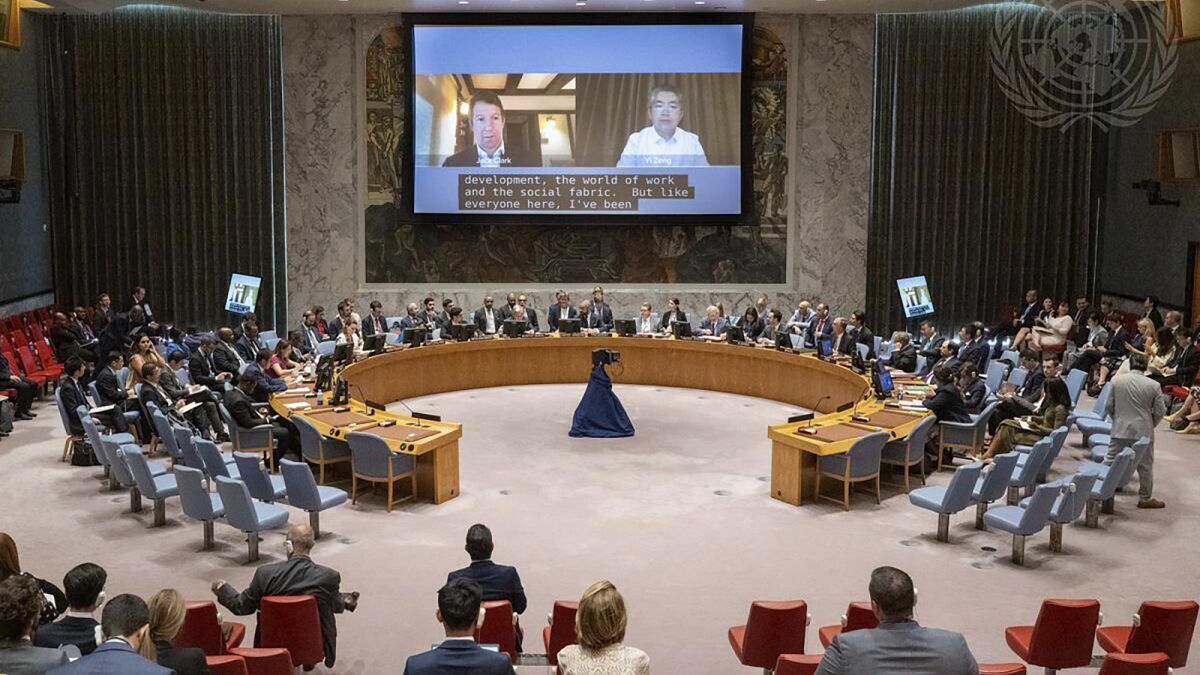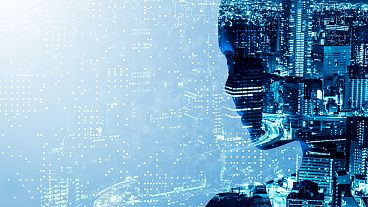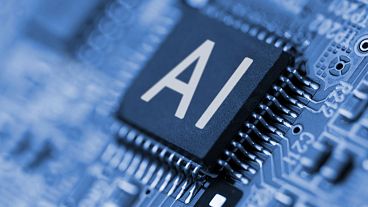The UN Security Council held a meeting on the risks of artificial intelligence (AI) for global peace and security, calling for urgent safeguards against the "unprecedented" technology.
The United Nations Security Council has convened a historic session to address the potential threat of artificial intelligence to international peace and stability.
Secretary-General António Guterres warned the council that the advent of generative AI could have very serious consequences for international peace and security, pointing to its potential use by terrorists, criminals and governments causing “horrific levels of death and destruction, widespread trauma, and deep psychological damage on an unimaginable scale.”
AI could help eradicate poverty, drive out hunger, cure cancer and stimulate climate action, but other "military and non-military applications of AI could have serious consequences for global peace and security,” said Guterres.
As a first step, the secretary-general called for the need for a global watchdog to monitor the rapidly evolving technology and said the UN would appoint a high-level advisory board for AI that will report back on options for global AI governance by the end of the year.
The envisioned agency would include specialists in the AI field, offering their expertise to governments and administrative bodies that may lack the technical knowledge required to effectively tackle the challenges posed by AI threats.
The United Nations is “the ideal place” to adopt global standards to maximise AI’s benefits and mitigate its risks, he said.
The UN chief also said he welcomed calls from some countries to create a new body to support global efforts to govern AI, “inspired by such models as the International Atomic Energy Agency, the International Civil Aviation Organization, or the Intergovernmental Panel on Climate Change.”
During a video briefing with the UN’s Security Council, Professor Yi Zeng, director of the Chinese Academy of Sciences' Brain-inspired Cognitive Intelligence Lab, said the UN should establish a working group to consider the near-term and long-term challenges that AI poses to international peace and security.
But he also stressed that recent generative AI systems “are all information processing tools that seem to be intelligent” but don’t have real understanding, and therefore “are not truly intelligent.”
Zeng, who also co-directs the China-UK Research Centre for AI Ethics and Governance, warned that “AI should never, ever pretend to be human,” insisting that real humans must maintain control, especially of all weapons systems.
Evaluating AI for misuses and flaws
Jack Clark, co-founder of AI company Anthropic, and former policy director of OpenAI - the lab creator of the best-known chatbot ChatGPT- also intervened in the panel to warn that big tech companies can’t be trusted to guarantee the safety of systems we don’t yet understand and are prone to “chaotic or unpredictable behaviour,” he said.
“It’s as though we are building engines without understanding the science of combustion,” he noted.
The AI entrepreneur, who is currently working on a ChatGPT-like chatbot called Claude, said it was fundamental for the world to come together and “work on developing ways to test for capabilities, misuses and potential safety flaws of these systems”.
“Any sensible approach to regulation will start with having the ability to evaluate an AI system for a given capability or flaw,” said Clark in a video briefing.
Right now, there are no standards or even best practices on “how to test these frontier systems for things like discrimination, misuse or safety,” which makes it hard for governments to create policies and lets the private sector enjoy an information advantage, he added.
Clark also stepped in to warn of “potential threats to international peace, security and global stability” from AI’s potential for misuse and unpredictability “as well as the inherent fragility of them being developed by such a narrow set of actors.”
If there is no robust evaluation, he said, “we run the risk of regulatory capture compromising global security and handing over the future to a narrow set of private sector actors.”
Other AI executives such as OpenAI's CEO, Sam Altman, have also called for regulation.
But sceptics say regulation might end up benefiting established companies with significant financial resources like OpenAI, Google, and Microsoft. These big tech companies, often referred to as "deep-pocketed first-movers," have the resources to handle the costs associated with ensuring their large language models comply with the regulatory requirements.
As a result, smaller players in the AI industry could be at a disadvantage and may find it challenging to compete with larger and more financially robust companies.
British foreign secretary James Cleverly, who chaired the meeting as the UK holds the council presidency this month, announced that his country will bring world leaders together for the first major global summit on AI safety this autumn.
“We are here today because AI will affect the work of this council. It could enhance or disrupt global strategic stability. It challenges our fundamental assumptions about defence and deterrence,” he said, adding that “no country will be untouched by AI”.
“We must involve and engage the widest coalition of international actors from all sectors,” he said.
“Our shared goal will be to consider the risks of AI and decide how they can be reduced through coordinated action.”
Last month, European Union lawmakers successfully approved the world's first extensive set of regulations for artificial intelligence.
This milestone represents a significant step forward as authorities worldwide strive to control and manage the impact of AI technologies.



